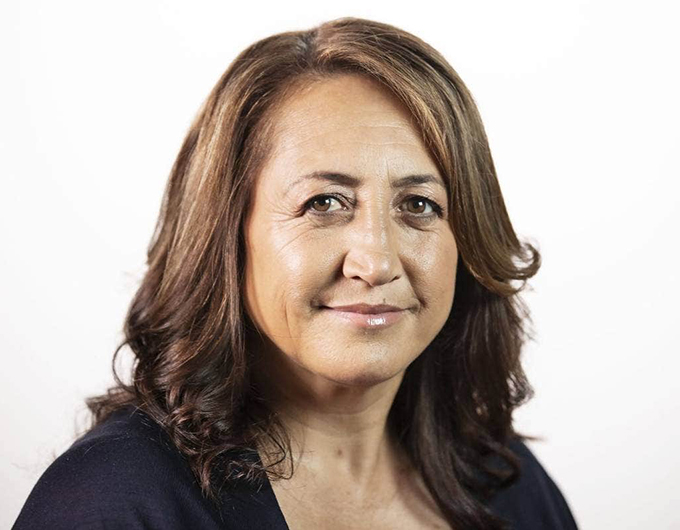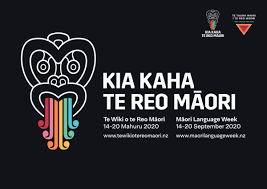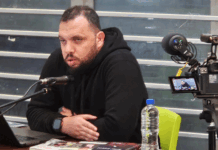
COMMENTARY: By Carmen Parahi
Since 2001, I’ve worked in both mainstream news and Māori media. I love journalism but it’s a hard slog being a Māori reporter.
In the mainstream news, Māori reporters are a minority, Māori stories and voices aren’t given a similar priority to other stories unless it’s adversarial.
This is problematic because it creates inequity for Māori.
READ MORE: Te Wiki o te Reo Māori – Māori language week

We don’t provide a counter-balance to the adversarial stories because we don’t report enough on other aspects of Māori society. This distorts the narrative about Māori by portraying them negatively and as being outside the perspective of the news media.
The example for Māori can be used for any minority culture in Aotearoa New Zealand.
The news media system, its organisations and personnel are supposed to represent everyone. They don’t and never have historically.
The first papers appeared in the mid-1800s. They were instruments of the Crown and represented settlers’ perspectives on issues related to settlement including land disputes with Māori.
News media set up to favour Western ideologies
Like so many other colonial systems such as education, the news media was set up to support and favour Western European ideologies and practices.
For Māori to be included in any of those structures they have to adopt English and Pākehā cultural norms. If they don’t, then they are excluded.
The public voices and perspectives of Māori were marginalised by the news media then and although it has improved over time, Māori are still not well represented now.
As journalists, we are held to account by public opinion, a set of industry principles, defamation laws and newsroom codes of conduct. We are supposed to be independent, without bias or favour.
This is difficult to achieve when the news system and newsrooms aren’t being constantly monitored to ensure it isn’t biased or favours Pākehā perspectives.
Hard for younger minority journalists
In my early reporter years, I dropped aspects of my Māoritanga to fit in. This isn’t the case for me now because I’m a senior reporter but it can be for younger minority journalists.
My independence, important to journalism, is often questioned by other reporters and the public. I’m seen to be biased because I’m Māori and focus on Māori perspectives.
I have a file full of emailed complaints, some of them racist, about the stories I write.
For example, one guy called me a “f….. b…. and said: “The reason there is racism in this country is because you are a racist against New Zealand Europeans opening your racist gob and spreading your racist words.”
It can get a bit lonely being the lone Māori voice in a newsroom. I have a Stuff whānau who supports me. I could stop focusing on Māori but who else will do it?
It is my way of supporting the community even though I’ve been left in tears by Māori questioning how Māori I am and why I’m reporting on them.
When I backed Stuff’s campaign to make Matariki a public holiday, a Māori reader called me a kūare, an insulting term.
A purpose to the query
I like it when colleagues ask me for advice on all things Māori, I don’t mind because there is a purpose to the query. But sometimes, cultural differences can cause conflict in the newsroom.
I recall years ago printing off a report and my workmate said, ‘could you hurry up with printing that Māori s…’. Another colleague around that time asked me to stop pronouncing Māori place names correctly because no one knew where I was talking about.
I nearly got into a physical fight with a reporter who called my cultural practices, politically correct bulls….
Obviously I wouldn’t still be in the industry if I didn’t think there is some good in it, including all the people I’ve worked with over the years, despite our differences. Newsrooms are trying to be more inclusive in everything they do. We’ve come a long way from our news forefathers of yesteryear.
At Stuff, we no longer pluralise Māori words, only an apostrophe ‘s’ on possessive nouns. In 2017, Stuff introduced macrons during te wiki o te reo Māori, the Māori Language week.
This weekend, we kicked off plans to reclaim te reo Māori and culture in support of Māori language week. All of our mastheads will carry reo Māori names supported by local iwi.
Uplifting the voices of Māori
We’ve been purposefully creating projects and stories to uplift the voices of Māori and all cultures of Aotearoa New Zealand such as Nā Niu Tīreni and our new series, Aotearoa in 20.
I believe the news system can be better and more inclusive. Our younger generation of reporters tend to be less monocultural in their views and thinking.
But if we don’t change our representation of all cultures now, they may carry the same marginalisation practices of the past into the future.
The older ones, like myself, know it’s time to do more if we are to truly represent the bicultural foundations of Aotearoa New Zealand and its multicultural society.
Carmen Parahi (Ngāti Kahungunu, Ngāti Hine, Rongowhakaata) is national correspondent for Stuff. The Pacific Media Centre/Te Amokura is republishing her articles with permission.













































